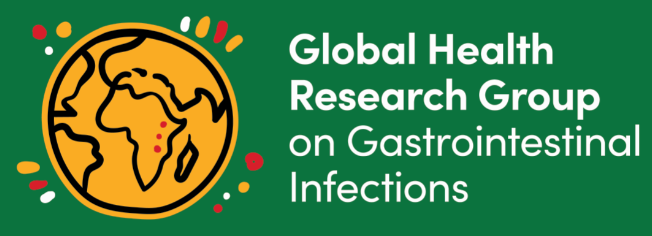Responsive funding – A contribution to Malawi’s multipronged response to the cholera outbreak
Thu, 14 Nov 2024 10:00
Responsive funding – A contribution to Malawi’s multipronged response to the cholera outbreak
The GHRG GI has five key aims to; Develop sustained engagement with communities and key stakeholders to provide greater national visibility of gastrointestinal infection research in Malawi; Estimate the clinical and cost burden of vaccine-preventable gastrointestinal infections (rotavirus, Shigella, Enterotoxigenic E.coli) presenting to secondary and tertiary health facilities; Model the clinical impact and cost-effectiveness of vaccines against rotavirus, Shigella and ETEC; Create sustainable systems to measure the burden of gastrointestinal infections and the outcomes of vaccine interventions to inform policy decisions; Develop a cohort of Malawian scientists with expertise in gastrointestinal infection research. Beyond these five aims the GHRG-GI has access to resources to timely respond to local health and research challenges, working together with local actors.
The GHRG-GI recently responded to the deadliest cholera epidemic in Malawi that resulted in over 60,000 cases and over 1,700 deaths between 2022 and 2023. Reports of cholera transmission began in March 2022 maintaining through the dry and wet months of both 2022 and 2023. Cholera is endemic in Malawi and normally seasonal with reports of outbreaks between November and May, when it rains. Seasonal outbreaks rarely exceed 100 cases. A multifaceted national response plan with support from international partners was initiated by the Malawi Government and included reactive vaccination campaigns, surveillance and laboratory strengthening activities, water-sanitation-Hygiene (WASH) interventions, health systems and human resource strengthening. The GHRG-GI contributed to aspects of the response and worked together with the Public Health Institute of Malawi specifically to:
- Characterise at genomic level the major Vibrio cholerae strain responsible for the persistent cholera outbreak
- Determine the relatedness of V. cholerae strains from the ongoing outbreak
- Determine the origin of the outbreak strains
A recurring meeting between the GHRG-GI and the Public Health Institute of Malawi (PHIM) was set up in December 2022 where the nature and scope of the response was discussed. The GHRG-GI supported the following activities:
- DNA extraction from the stool samples collected from across Malawi
- Shipping of the extracted DNA to South Africa for sequencing
- Analysis of the V. cholerae sequences
- Training of PHIM staff in sequencing
- Training of PHIM staff in bioinformatics analysis
By April 2023, the GHRG-GI submitted a policy brief to the Malawi Ministry of Health, following a comprehensive sequence analysis of the generated Vibrio cholerae genomes. Since the first reports of the cholera epidemic in March 2022, this brief provided the first detailed account of the circulating V. cholerae strains that were wreaking havoc on the Malawian people.
A manuscript was later drafted and posted online on 12th June 2023 on medRxiv; doi: https://doi.org/10.1101/2023.06.08.23291055. On 26th July 2024 the cholera work was also published in Nature Communications (https://www.nature.com/articles/s41467-024-50484-w). The Editors at Nature Communications chose to showcase this work on the Editors’ Highlights webpage of recent research called “Public health” (https://www.nature.com/collections/jcbdhegiab).
Sequence analysis provided useful insights into the genomic epidemiology of the outbreak. Findings showed the predominance of ST69 seventh cholera pandemic El Tor (7PET) strains expressing O1 Ogawa (∼80%) serotype followed by Inaba (∼16%) and typical non-outbreak-associated non-O1/non-ST69 serotypes (∼4%). It was encouraging that the outbreak strains were found genotypically susceptible to doxycline and erythromycin, the antibiotics that were being used at the time for the management of cases.
Sequence analyses of the genomes were done by staff from the Kamuzu University of Health Sciences, University of Liverpool and Yale University. The Public Health Institute of Malawi has whole genome sequencing machines but at the time of the cholera lacked experts with sequencing knowhow and also bioinformatics capacity for analysis. As part of the response to the outbreak the GHRG-GI provided financial support for Mr. Innocent Chibwe, a Laboratory Technologist at PHIM to travel and participate in the University of the Free State – Next Generation Sequencing (UFS-NGS) and Bioinformatics Workshop, which was held between 3rd and 14th July 2023 in Bloemfontein, South Africa.
Prof. Chisomo Msefula
Updated 14/11/2024
